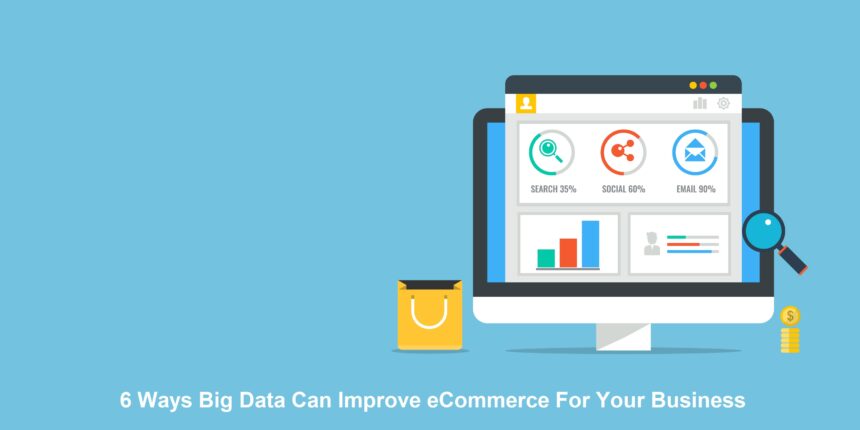In recent years, big data has become more popular as businesses of all sizes have discovered how to tap into it when it comes to making crucial decisions. Big data has assisted in finding and fixing problems, tracking business progress, and justifying causes for action. Although there is still much more that we can do when it comes to fully understanding big data, learning more means that we are able to utilize it to an even larger extent. And, many professionals believe that big data is the future of ecommerce, opening several doors for online businesses including analyzing sales, efficient transaction tracking, forecasting demand and supply, planning out expansion, and much more. So, how can big data help your ecommerce site?
1. Provide a Personalized User Experience
The ecommerce experience was once severely lacking in any personal touch, which prevented shoppers from building a connection with the business. Buyers had to go through all the products with no option for highlighting the ones that they were interested in. Thanks to big data analytics, today?s ecommerce owners are able to recommend items that their users are actually looking for. You can use big data to track the products that shoppers are interested in, allowing you to send personalized recommendations to the user that really mean something for them.
2. Price More Competitively
Your ecommerce store?s pricing strategy is one of the key determinants as to whether a shopper chooses your store or one of your competitors and it should be a vital part of your marketing strategy plan. It?s easy for your users to check other ecommerce sites in order to find the best deal, which is why offering competitive prices is so important. To customers, it makes no sense to pay more for an item that they can get for less on another site. However, manually checking your competitor?s sites on a regular basis would be a tedious task. Thanks to big data analytics, you have the ability to check how your competitors have priced their products, allowing you to respond accordingly.
3. Turn Visitors into Buyers
When it comes to putting time, effort and resources into understanding big data, your ultimate goal should be attaining a higher conversion rate or turning visitors into actual buyers. Big data allows you to get a clearer picture of why visitors are leaving a site without making a purchase, whether it?s down to on-site issues such as load speed or shopper concerns such as lack of site security, high prices or inadequate logistics solutions. This allows you to make more informed improvement decisions, such as switching e-commerce platforms or providing better shipping options. If you want to convert customers into buyers it helps to treat your website like a shopfloor, build trust with your visitors and ensure your website is responsive. You can then evaluate the data before and after implementing these changes to measure what works best for your brand.
4. Better Manage Your Inventory
In addition to the above, you can also use big data to better manage your inventory. It allows you to automatically detect products that have been through the sales process successfully, in addition to tracking products that are returned. Big data analysis can also be used to track demand, allowing you to ensure that you get the right amount of inventory. Using this, you can determine the right number of products that are needed for certain periods, allowing you to stop wasting money on having too much or losing out on sales due to being out of stock.
5. Predict Trends
Every online retailer wants to know about the next bestselling product before their competitors. Utilizing big data is a strategy that you must not miss out on when it comes to predicting trends in the market. Trend forecasting algorithms allow retailers to eliminate the guesswork when it comes to the next big products, combing data from social media posts and user web browsing habits to determine which products are causing a buzz. Sentiment analysis is another big data strategy that retailers can use to determine the context in which products are being talked about online. Are conversations positive or negative? The data collected can be used to accurately predict the next popular products in various categories.
6. Optimize Customer Service
Last but not least, the customer service is a vital component of your ecommerce store and without it, you?re going to lose out to your competition very quickly. In addition to competitive prices, popular products, and a personalized customer experience, your customers want to feel that they are truly valued and understood by your brand. Exceptional customer service is crucial for both customer satisfaction and retention in the retail industry, both online and offline. Big data allows you to better determine the service strategies that work well for your customers, in addition to those that don?t have a great effect. As a result, you will be able to optimize your customer service strategies and provide an enhanced customer experience, allowing you to gain an edge over your competition.
Final Thoughts
There are always beneficial ways to use big data to improve your ecommerce business, no matter what point you are in your company’s growth. It’s an especially exciting time to be a business owner. Do you use big data to improve your ecommerce store? We?d love to hear from you in the comments.









